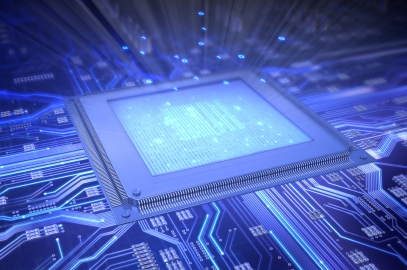Happy 50th birthday to the silicon chip
IT PRO marks the 50th birthday of the integrated circuit - and the birth of modern computing - by celebrating its creator Jack Kilby and looking forward to its future.

Sign up today and you will receive a free copy of our Future Focus 2025 report - the leading guidance on AI, cybersecurity and other IT challenges as per 700+ senior executives
You are now subscribed
Your newsletter sign-up was successful
The integrated circuit, more commonly known as the silicon chip, celebrates its 50th birthday this Friday.
It revolutionised electronics by making devices much cheaper to manufacture and helped to create the modern computer industry we have today.
Such chips enabled great cost reductions and transformed room-sized machines into today's mainframes, personal computers and laptops. It has also been used in devices such as mobile phones, digital cameras and music players.
The integrated circuit was created in 1958 by Jack Kilby, who was working at Texas Instruments at the time. He came up with the idea that you could put the elements of an electronic circuit onto a silicon chip.
Transistors could be packed into smaller spaces, making it possible to allow thousands or millions of wires to connect the transistors and other devices at the same time.
Jim Tully, Gartner analyst and vice president, said that silicon chips have now become part of our everyday lives and are now woven into society, making it hard to visualise a world without integrated circuits.
"If we didn't have integrated circuits we wouldn't have the internet, PCs, mobile phones, iPods - TV wouldn't be quite the thing we see it as being we certainly wouldn't have flat panel TV's," he said. "Wherever you look technologies are built on integrated circuits."
Sign up today and you will receive a free copy of our Future Focus 2025 report - the leading guidance on AI, cybersecurity and other IT challenges as per 700+ senior executives
The future for the integrated circuits looks to be its use with medical applications - diagnostic equipment but also technology that is embedded into bodies, semiconductor technology merged with biology.
Tully described devices such as scanners, pacemakers and hearing aids which have enhanced lives and integrated circuits have made possible.
The sale of integrated circuits is still a huge money spinning industry, growing at ten per cent for the last few decades. In 2008, around $270 billion (152 billion) worth will be sold globally.
-
 ITPro Best of Show NAB 2026 awards now open for entries
ITPro Best of Show NAB 2026 awards now open for entriesThe awards are a fantastic opportunity for companies to stand out at one of the industry's most attended shows
-
 Mistral CEO Arthur Mensch thinks 50% of SaaS solutions could be supplanted by AI
Mistral CEO Arthur Mensch thinks 50% of SaaS solutions could be supplanted by AINews Mensch’s comments come amidst rising concerns about the impact of AI on traditional software